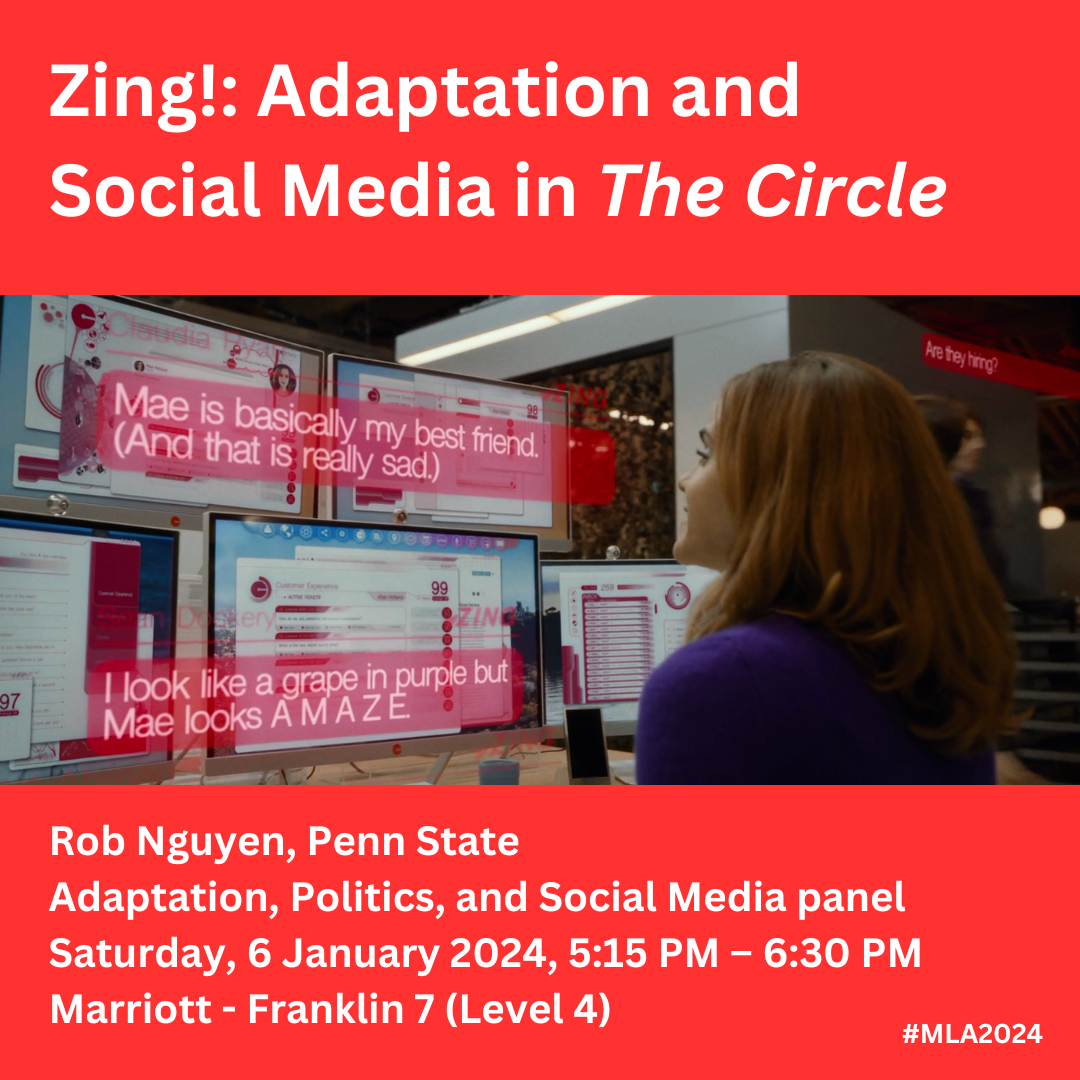MLA 2024: Presenting on the Adaptation, Politics, and Social Media panel
I'm excited to share that I'll be participating in the Adaptation, Politics, and Social Media panel at the Modern Language Association convention in Philadelphia this coming January. The panel is presented by the Adaptation Studies forum of the MLA.
For interested convention attendees, this panel will be Saturday, 6 January 2024, 5:15 PM - 6:30 PM Marriott - Franklin 7 (Level 4). I hope to see you there, and if you can't make it, please reach out and I'd be happy to meet up and chat some time over the weekend. For more information, and details on the fantastic scholars that I'll be joining, see the MLA's online program.
Below is the abstract of my paper.
"Zing!: Adaptation and Social Media in The Circle"
In James Ponsoldt’s film adaptation of Dave Eggers’s novel The Circle, the social media platform Zing is adapted into a cinema-friendly form. Where Eggers describes in prose the Tweet-like messages that appear in protagonist Mae’s feed, Ponsoldt’s film displays them for the audience as on-screen graphics: red speech bubbles with white text, in one scene blipping onto existence around Mae’s head as she wakes.
I argue that adaptation’s formal structure—what Linda Hutcheon has called its “theme and variation”—allows here for a critique of the doubly public and private nature of social media. In both film and novel, the imagined Zing platform is a remediation in the sense used by Jay David Bolter and Richard Grusin: a representation of media in other media that emphasizes both its immediate and hypermediated nature. The latter draws attention to the varied viewing and writing practices social media platforms facilitate: audiences’ individual experience reading about the Zings in the novel mediates the private consumption of social media, such as scrolling on one’s phone or desktop, while audiences’ shared cinema experience of seeing Zings appear around Mae’s head emphasizes the highly public and frequently alienating nature of social media (as one Zing in that scene reads, “I would die if 2 million people saw me wake up every day”).
By analyzing these scenes through lenses of adaptation, visual, and media studies, I argue that these works critique how social media simultaneously positions its audience-writers as both isolated and as compulsively, even oppressively, never alone.
